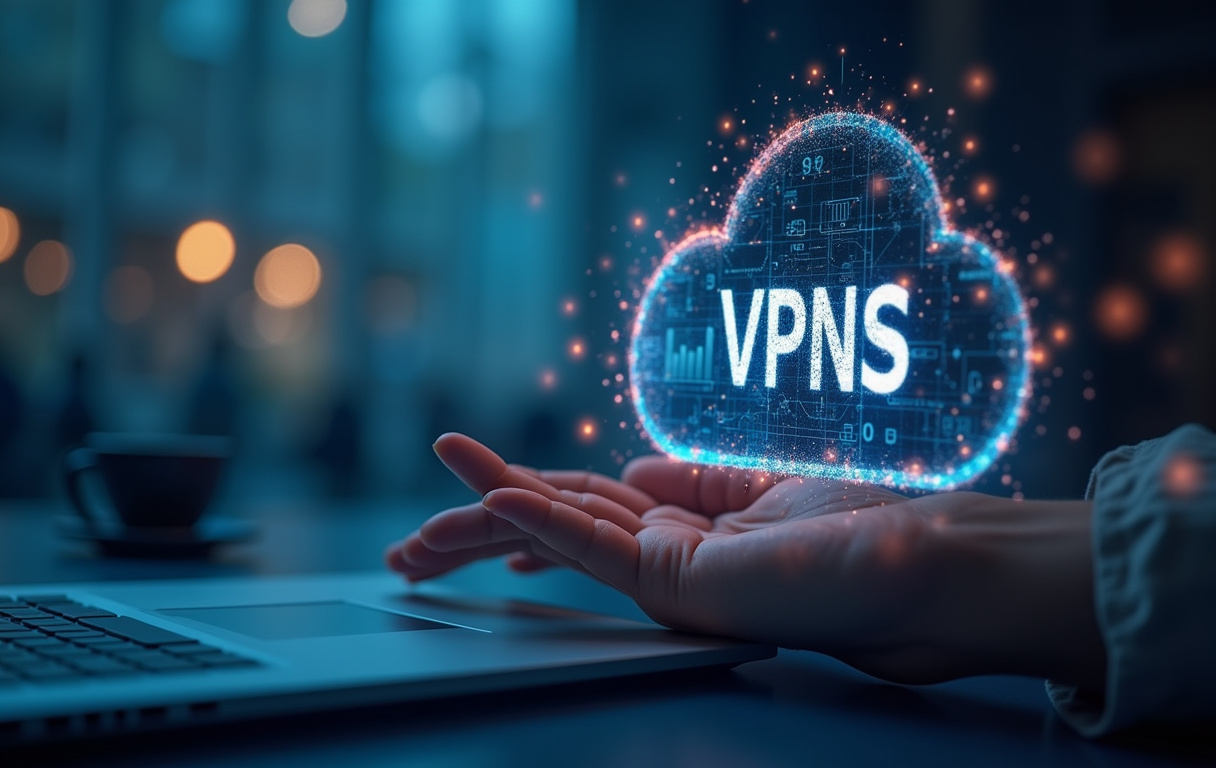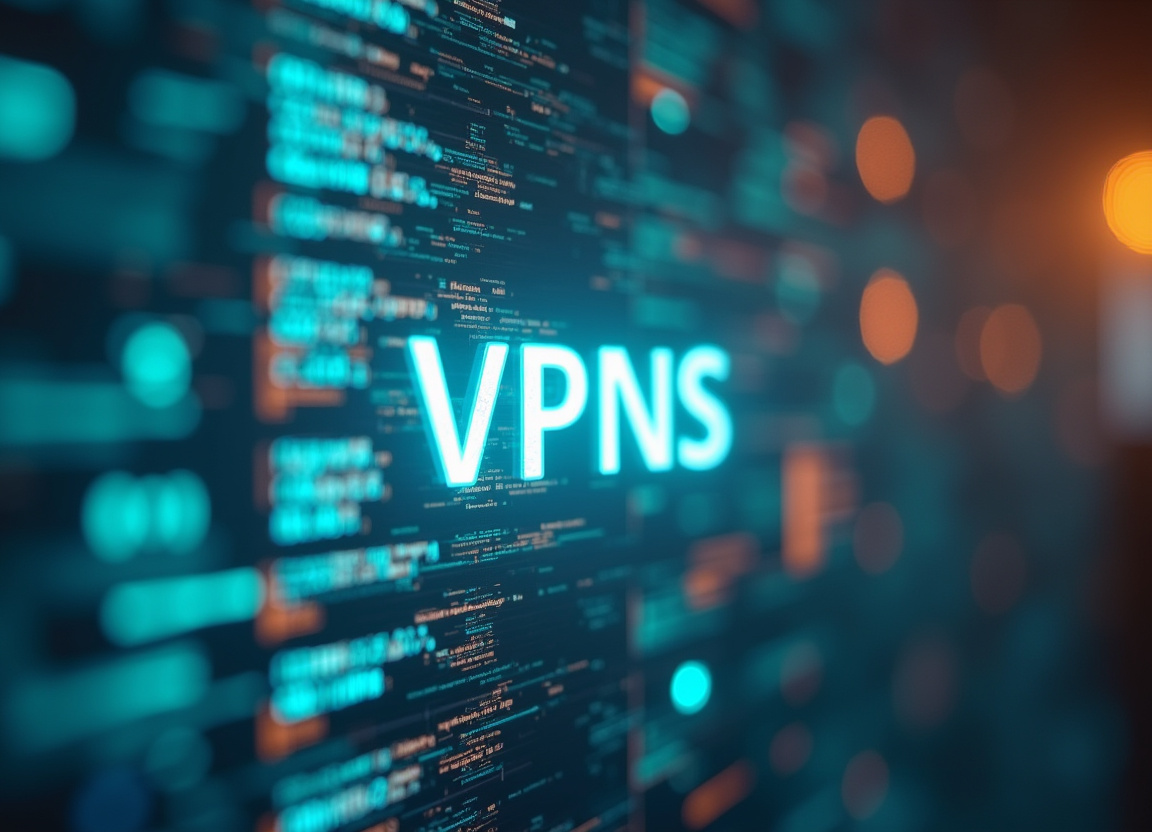VPNs for Influencer Marketing: Securing Campaign Analytics

Table of Contents
In today's hyper-connected digital landscape, influencer marketing has emerged as a powerful tool for brands to reach target audiences, drive engagement, and ultimately, boost sales. By collaborating with individuals who have a strong online presence and a dedicated following, companies can leverage authentic voices to promote their products or services, build brand awareness, and cultivate customer loyalty. However, the reliance on digital platforms and data-driven strategies in influencer marketing also exposes campaigns to a plethora of security vulnerabilities, potentially compromising sensitive data, skewing campaign analytics, and jeopardizing the return on investment.
The intricate network of interactions between brands, influencers, and their audiences, all occurring within the digital realm, creates multiple points of entry for malicious actors seeking to exploit weaknesses and manipulate data. Securing campaign analytics and influencer interactions is no longer an option but a necessity for successful and sustainable influencer marketing efforts. This article delves into the crucial role of Virtual Private Networks (VPNs) in safeguarding influencer marketing campaigns, focusing on how they enhance data integrity, protect sensitive information, and ultimately, contribute to more accurate and reliable campaign analytics.
We'll explore how integrating VPNs addresses critical concerns surrounding data privacy, cybersecurity threats, and the need for a secure and trustworthy environment for both brands and influencers. At its core, influencer marketing thrives on building authentic relationships between brands and influencers, who in turn connect with their audiences. These relationships are built on trust, transparency, and shared values.
However, the digital nature of these interactions means that they are constantly vulnerable to eavesdropping, data interception, and manipulation. Without proper security measures in place, sensitive information, such as campaign strategies, influencer contracts, and performance data, can be exposed to unauthorized parties, potentially leading to financial losses, reputational damage, and legal liabilities. The use of VPNs creates a secure tunnel for all online activity, encrypting data and masking IP addresses, thereby making it extremely difficult for malicious actors to intercept or tamper with sensitive information.
This is particularly important when dealing with confidential campaign data, influencer agreements, and financial transactions. VPNs act as a protective shield, ensuring that all communications and data transfers remain private and secure. Furthermore, inaccurate or compromised campaign analytics can lead to misguided decisions and wasted resources.
In the data-driven world of influencer marketing, accurate analytics are essential for measuring campaign effectiveness, identifying successful strategies, and optimizing future campaigns. If these analytics are skewed or manipulated, marketers may make incorrect assumptions about campaign performance, leading to ineffective resource allocation and missed opportunities. VPNs play a vital role in ensuring data integrity by preventing data breaches, protecting against man-in-the-middle attacks, and maintaining the confidentiality of campaign performance metrics.
By routing all internet traffic through a secure server, VPNs prevent malicious actors from intercepting or altering campaign data. Moreover, VPNs can help to prevent ad fraud, a common problem in online advertising, by masking IP addresses and preventing bots from generating fake clicks and impressions. With the increasing sophistication of cyber threats, brands and influencers must prioritize security measures that go beyond basic password protection and firewalls.
A multi-layered approach to security is essential for mitigating risks and protecting sensitive information. VPNs provide an additional layer of security by encrypting all internet traffic, making it virtually impossible for hackers to decipher sensitive information, even if they manage to gain access to a network. This is especially crucial when influencers are working remotely or using public Wi-Fi networks, which are notoriously insecure.
Public Wi-Fi networks are often targeted by hackers because they lack proper security protocols, making them vulnerable to eavesdropping and data interception. By using a VPN, influencers can protect their online activity, even when using unsecured Wi-Fi networks. Moreover, VPNs help to maintain consistent and reliable access to campaign analytics platforms, ensuring that data is readily available when needed, regardless of geographical location or internet restrictions.
As the reach and reliance of influencer marketing grows, it's vital to ensure that teams have seamless access to the tools and data they need to power their campaigns. By implementing robust VPN solutions, brands can demonstrate their commitment to data protection and build trust with their influencer partners and their audiences. This enhanced level of security not only safeguards sensitive information but also protects the reputation and credibility of the brand itself.
This approach also ensures that all parties involved in the marketing initiative are shielded from potential legal repercussions related to data breaches and privacy violations. The use of VPNs aligns with best practices in data security and privacy, as well as industry regulations such as the General Data Protection Regulation (GDPR) and the California Consumer Privacy Act (CCPA). By adhering to these standards, brands can ensure that their influencer marketing campaigns are conducted in a responsible and ethical manner.
The concept of 'influencer marketing VPN' directly addresses the need for a specialized security solution tailored to the unique demands of the influencer marketing ecosystem. This is not simply about using any generic VPN but selecting one that offers features and capabilities specifically designed to protect campaign data, influencer communications, and overall marketing intelligence. A generic VPN may offer basic encryption and IP masking, but it may lack the specific functionalities required for effective influencer marketing security.
A dedicated influencer marketing VPN should provide robust encryption, secure authentication protocols, geo-spoofing capabilities (for accessing region-specific data), and seamless integration with campaign analytics platforms. Furthermore, it should offer advanced features such as threat detection, malware protection, and data loss prevention to safeguard against a wider range of cyber threats. An enhanced data integrity is essential to accurately track campaign performance.
The use of VPNs ensures that the collected analytics are free from tampering or manipulation, providing a true reflection of campaign reach, engagement, and conversions, also, enhances 'campaign analytics security'. This allows marketers to make informed decisions based on reliable data, optimizing their strategies for maximum impact. Without accurate analytics, marketers may be relying on flawed data, leading to incorrect assessments of campaign performance and ineffective resource allocation.
VPNs contribute to data integrity by preventing data breaches, protecting against data alteration, and ensuring the authenticity of collected data. VPNs also protect against data leakage, preventing unauthorized access to sensitive campaign information. Data leakage can occur through various channels, including unsecured email communications, compromised cloud storage accounts, and vulnerable analytics platforms.
By encrypting all data in transit and masking IP addresses, VPNs prevent malicious actors from intercepting or accessing sensitive campaign information. This is particularly important when dealing with confidential campaign plans, influencer agreements, and financial data. Implementing robust data loss prevention strategies requires a deep understanding of the risks, data flows, and systems involved in the marketing initiative to protect the system.
Furthermore, VPNs can be used to monitor competitor activity and gather valuable market intelligence without revealing the brand's identity or intentions. By masking IP addresses and encrypting browsing data, businesses can anonymously research their competitors' strategies, pricing models, and customer engagement tactics. This allows them to gain a competitive edge by identifying opportunities and avoiding potential pitfalls.
Competitor analysis is a critical component of any successful marketing strategy. It enables businesses to understand the competitive landscape, identify trends, and differentiate their offerings. VPNs facilitate anonymous competitor research by preventing competitors from tracking their online activity.
VPNs play a crucial role in managing multi-regional influencer campaigns. For instance, a brand might engage influencers from different countries to promote its products or services in specific target markets. Using a VPN, the marketing team can access region-specific analytics, such as social media trends and search engine rankings, as if they were physically located in those regions.
This enables them to tailor their messaging and campaign strategies for each individual market, ensuring maximum relevance and impact. Geo-spoofing capabilities of VPNs enable marketing teams to simulate a presence in different geographical locations, allowing them to access local content, analyze regional trends, and test the effectiveness of their campaigns in different markets. The ability to simulate a presence in different geographical locations is particularly useful for conducting market research and understanding cultural nuances.
Market research is essential for understanding target audiences, identifying emerging trends, and adapting marketing strategies to local preferences. By using a VPN to access region-specific data, marketers can gain valuable insights into consumer behaviour, cultural sensitivities, and market dynamics. VPNs also facilitate secure communication and collaboration with influencers, regardless of their geographical location.
By encrypting all communication channels, including email, instant messaging, and video conferencing, VPNs prevent eavesdropping and protect sensitive information from being intercepted by malicious actors. This is particularly important when discussing confidential campaign details, influencer agreements, and financial transactions. Another significant advantage of using VPNs in influencer marketing is the ability to bypass censorship and access blocked content.
In some countries, access to certain social media platforms or websites may be restricted by government regulations or internet service providers. VPNs enable marketers to circumvent these restrictions and access the content they need to effectively manage their campaigns. This can be particularly useful when researching target audiences, monitoring competitor activity, or communicating with influencers in restricted regions.
Accessibility to any resource from anywhere on Earth, with total encryption of all the information flow makes VPN one of the best allies. Interaction with influencers is a cornerstone of successful campaigns, and 'interaction protection' is of utmost importance. Securing the integrity of these interactions involves not only protecting communication channels but also verifying the authenticity of influencers and preventing fraudulent activities, ensuring trust and reliability between all parties.
The concept of promoting 'Data integrity' in influencer marketing using VPNs goes beyond simply encrypting data in transit. It encompasses a holistic approach to data security, ensuring that data is accurate, complete, and consistent throughout its entire lifecycle, from collection to analysis and reporting. This includes implementing measures to prevent data alteration, data loss, and unauthorized access.
Data integrity is the foundation of reliable analytics, informed decision-making, and effective campaign optimization. Without data integrity, marketers are essentially operating in the dark, making decisions based on flawed information, which can lead to wasted resources and missed opportunities. In the context of influencer marketing, data integrity is crucial for accurately measuring campaign performance, evaluating influencer effectiveness, and making informed decisions about future marketing investments.
Compromised data can lead to skewed results, misleading insights, and ultimately, ineffective campaigns. For example, if campaign analytics are manipulated by bots or fraudulent activities, marketers may overestimate the reach and engagement of their campaigns, leading them to invest in ineffective strategies. Similarly, if influencer performance data is inaccurate, marketers may misjudge the effectiveness of individual influencers, leading them to allocate resources inefficiently.
VPNs play a vital role in maintaining data integrity by protecting against various threats, including man-in-the-middle attacks, data breaches, and fraudulent activities. Man-in-the-middle attacks involve malicious actors intercepting communications between two parties, such as a brand and an influencer, and altering the data being transmitted. VPNs prevent man-in-the-middle attacks by encrypting all data in transit, making it impossible for attackers to decipher the information being exchanged.
Data breaches involve unauthorized access to sensitive data, such as campaign analytics, influencer contracts, and financial information. VPNs protect against data breaches by masking IP addresses, encrypting data stored in cloud environments and preventing unauthorized access to corporate networks. Fraudulent activities, such as bot traffic and fake engagement, can significantly distort campaign analytics and undermine the accuracy of performance data.
VPNs can help to mitigate fraudulent activities by preventing bots from generating fake clicks and impressions, masking IP addresses, and employing advanced threat detection techniques. Moreover, VPNs contribute to data integrity by ensuring the authenticity of collected data. In the world of influencer marketing, it's essential to verify the authenticity of influencer followers and engagement metrics to ensure that campaigns are reaching genuine audiences.
VPNs can be used to analyze influencer follower demographics, engagement patterns, and content authenticity to identify suspicious activity. For example, if an influencer has a large number of followers from a particular region or exhibits unusually high engagement rates, it may be an indication of fraudulent activity. Maintaining data integrity also involves implementing robust data governance policies and procedures.
Data governance encompasses the processes, policies, and standards that ensure data quality, security, and compliance. In the context of influencer marketing, data governance should address issues such as data collection, data storage, data access, data retention, and data disposal. Data collection processes should be transparent and ethical, ensuring that data is collected in compliance with privacy regulations and with the informed consent of individuals.
Data storage practices should be secure, protecting data from unauthorized access, alteration, and loss. Data access controls should restrict access to sensitive data to authorized personnel only. Data retention policies should define how long data is stored and when it is securely disposed of.
In addition to VPNs and data governance policies, other security tools and technologies can be used to enhance data integrity in influencer marketing. These include firewalls, intrusion detection systems, and data loss prevention (DLP) tools. Firewalls act as a barrier between a network and the outside world, preventing unauthorized access to systems and data.
Intrusion detection systems monitor network traffic for malicious activity and alert administrators to potential security threats. Data loss prevention (DLP) tools prevent sensitive data from leaving the organization's control, such as through email, file transfers, or cloud storage services. By implementing a comprehensive approach to data security that combines VPNs, data governance policies, and other security tools, brands can ensure the integrity of their influencer marketing data, make informed decisions, and maximize the return on their marketing investments.
This commitment to data integrity not only protects the brand from financial losses and reputational damage but also fosters trust and transparency with its influencer partners and its target audiences. Securing campaign analytics is not simply a technical matter, but a strategic imperative that requires a holistic approach.
Effective 'VPN for marketing' strategies extend beyond simply securing influencer campaigns; they encompass a broader approach to protecting a brand's overall marketing efforts. This involves using VPNs to safeguard various marketing activities, including market research, competitor analysis, social media management, and email marketing. By implementing a VPN across all marketing functions, businesses can create a secure and reliable environment for conducting their marketing activities and protecting their sensitive information.
Market research is a critical component of any successful marketing strategy. It involves gathering and analyzing data about target audiences, market trends, and competitor activities. VPNs can be used to conduct anonymous market research, preventing competitors from tracking a brand's online activities and hindering their ability to gain valuable intelligence.
For example, a brand can use a VPN to access region-specific data, such as social media trends, search engine rankings, and consumer reviews, without revealing its identity or intentions. This enables the brand to gather valuable insights into consumer behavior and market dynamics without alerting its competitors. Competitor analysis is another essential marketing activity that can be enhanced by the use of VPNs.
By masking IP addresses and encrypting browsing data, marketers can anonymously research their competitors' strategies, pricing models, and customer engagement tactics. This allows them to gain a competitive advantage by identifying opportunities and avoiding potential pitfalls. For example, a brand can use a VPN to visit its competitors' websites, review their social media profiles, and analyze their advertising campaigns without revealing its identity or intentions.
This enables the brand to gather valuable intelligence about its competitors' strengths and weaknesses, identify potential market opportunities, and refine its own marketing strategies. Social media management is a core element of influencer marketing. Many brands also use social media for direct marketing.
Managing social media accounts also exposes brands to a variety of security risks, including hacking, phishing, and malware attacks. Hackers may attempt to gain unauthorized access to social media accounts to steal sensitive information, post malicious content, or spread misinformation. Phishing attacks involve tricking users into revealing their login credentials or other sensitive information.
Malware attacks involve infecting systems with malicious software that can steal data, disrupt operations, or compromise security. VPNs can protect social media accounts by encrypting internet traffic, masking IP addresses, and preventing unauthorized access. By using a VPN, marketers can securely manage their social media accounts from any location, without worrying about being hacked or phished.
Email marketing is used to reach target audiences, promote products or services, and build customer relationships. However, email marketing also exposes brands to a variety of security risks, including spam, phishing, and malware attacks. Spammers may send unsolicited emails to large numbers of recipients, often containing malicious links or attachments.
Phishing attacks involve tricking users into revealing their login credentials or other sensitive information by sending emails that appear to be legitimate. Malware attacks involve infecting systems with malicious software through email attachments or links. VPNs can protect email marketing activities by encrypting email traffic, masking IP addresses, and preventing spam and phishing attacks.
By using a VPN, marketers can securely send and receive emails, without worrying about their communications being intercepted or compromised. Furthermore, VPNs can be used to protect against Distributed Denial-of-Service (DDoS) attacks, which are designed to overwhelm a website or server with traffic, making it unavailable to legitimate users. DDoS attacks are a common threat to online businesses, particularly those that rely on e-commerce or online advertising.
By masking IP addresses and routing traffic through secure servers, VPNs can mitigate the impact of DDoS attacks and ensure that websites and servers remain available. In addition to protecting marketing activities, VPNs can also be used to ensure compliance with data privacy regulations, such as the General Data Protection Regulation (GDPR) and the California Consumer Privacy Act (CCPA). These regulations require businesses to protect the personal data of their customers and provide them with certain rights, such as the right to access, correct, and delete their data.
By using a VPN, businesses can encrypt the personal data of their customers, prevent unauthorized access, and ensure compliance with data privacy regulations. By implementing a comprehensive 'VPN for marketing' strategy, brands can create a secure and reliable environment for conducting their marketing activities, protecting their sensitive information, and ensuring compliance with data privacy regulations. This not only protects the brand from financial losses and reputational damage but also builds trust and transparency with its customers and partners.
Integrating a VPN is a strategic investment to protect all marketing efforts.
In conclusion, the effective integration of VPNs into influencer marketing strategies is paramount for 'campaign analytics security', ensuring 'interaction protection', and maintaining 'data integrity'. The reliance on digital platforms for campaign execution and data collection exposes businesses to numerous cybersecurity risks, potentially compromising sensitive information, skewing analytics, and undermining campaign effectiveness. By implementing robust VPN solutions, brands can create a secure environment for all marketing activities, protecting their assets, fostering trust with influencers and audiences, and ultimately, achieving a better return on investment.
The strategic use of an 'influencer marketing VPN' directly addresses the specific security challenges inherent in this dynamic and rapidly evolving marketing landscape. The benefits of using VPNs in influencer marketing are multifaceted. Firstly, VPNs provide a crucial layer of encryption, safeguarding sensitive data from interception and unauthorized access.
This is particularly important when dealing with confidential campaign plans, influencer contracts, financial information, and performance data. By encrypting all data in transit, VPNs prevent malicious actors from eavesdropping on communications, stealing sensitive information, or manipulating campaign data. Secondly, VPNs enhance data integrity, ensuring that campaign analytics are accurate and reliable.
By preventing bot traffic, masking IP addresses, and protecting against data breaches, VPNs help to mitigate fraudulent activities that can distort campaign performance metrics. This enables marketers to make informed decisions based on reliable data, optimizing their strategies for maximum impact. Accurate campaign analytics are essential for measuring campaign effectiveness, identifying successful strategies, and allocating resources efficiently.
Thirdly, VPNs protect influencer interactions, fostering trust and transparency between brands and influencers. Вy encrypting communication channels and verifying the authenticity of influencers, VPNs help to prevent fraudulent activities and ensure that interactions are genuine and trustworthy. This is particularly important for long-term partnerships, where trust and transparency are essential for building strong relationships.
Fourthly, VPNs enable brands to conduct anonymous market research and competitor analysis, gaining valuable insights into market trends and competitor strategies without revealing their identity or intentions. This allows them to develop more effective marketing strategies and gain a competitive advantage and identify opportunities. Fifthly, VPNs facilitate secure access to region-specific data, enabling brands to manage multi-regional influencer campaigns effectively.
By simulating a presence in different geographical locations, marketers can access local content, analyze regional trends, and tailor their messaging for each individual market. To maximize the benefits of using VPNs in influencer marketing, brands should choose a VPN solution that is specifically designed for business use, offering robust encryption, secure authentication protocols, geo-spoofing capabilities, and seamless integration with campaign analytics platforms. Furthermore, brands should implement robust data governance policies and procedures, ensuring that data is collected, stored, and used in a responsible and ethical manner.
In addition to VPNs, other security tools and technologies can be used to enhance data security in influencer marketing. These include firewalls, intrusion detection systems, data loss prevention (DLP) solutions, and multi-factor authentication. By implementing a comprehensive security strategy that combines VPNs with other security tools, brands can create a layered defense against cyber threats and protect their sensitive information.
The long-term impact of integrating VPNs into influencer marketing strategies is significant. By prioritizing data security and privacy, brands can build stronger relationships with their customers, enhance their brand reputation, and achieve sustainable success. This sends a clear message that the organization cares about the privacy and security of those it interacts with, and understands the need for all to interact over secure channels to reach higher ROI and improve campaign performance.
In an era that is increasingly defined by cyber threats and data breaches, securing influencer marketing campaigns is no longer a luxury but a necessity. By embracing VPNs and other security best practices, brands can protect their assets, safeguard their reputation, and thrive in the ever-evolving digital landscape. VPNs are an essential investment for safeguarding campaign analytics and ensuring the long-term success of influencer marketing initiatives.
Stay Updated
Get the latest VPN news, tips, and exclusive deals to your inbox.




